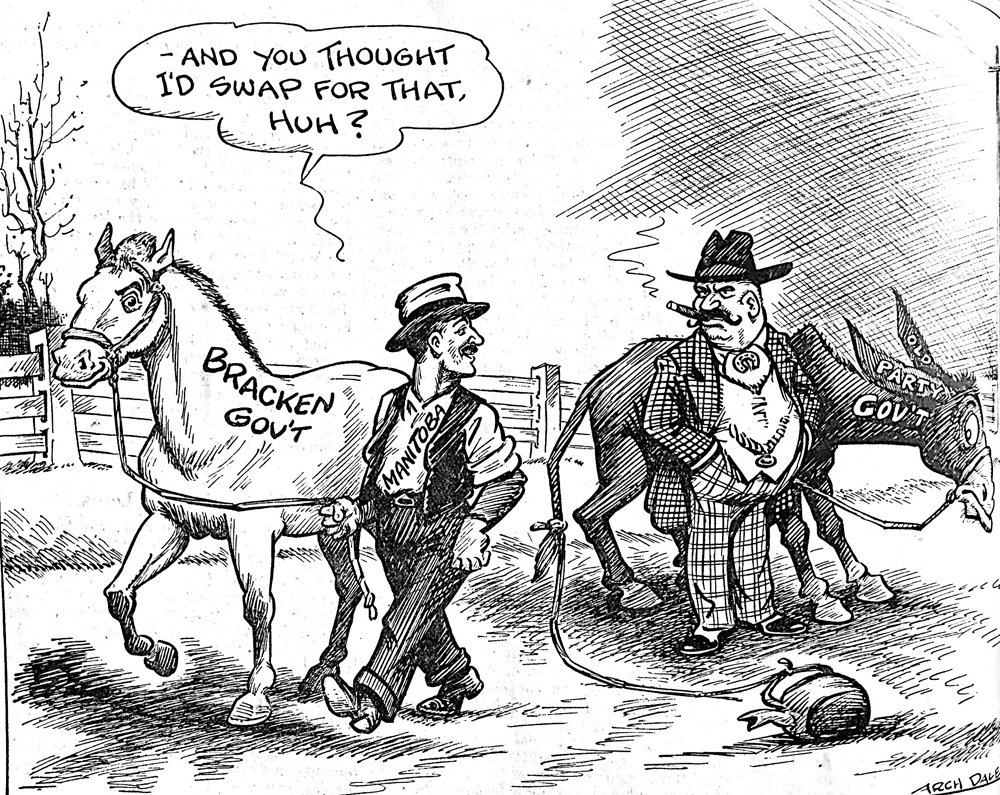 Why The Progressive Conservative Party When I announced that I’d offer for a term in public service with the Nova Scotia Progressive Conservatives my social media feed was jammed for days with posts from people saying “Why choose them?” Eventually an astute poster wrote, “Forget why he chose them, why on earth would they choose him?” To answer either question we have to share the history, present state, and future of Nova Scotia’s only truly provincial political party. I love Nova Scotia. It’s almost an island, almost a million people and almost perfect to me. But there’s work to be done. In this five part essay I’m writing the story of the Progressive Conservative Party of Nova Scotia, why I choose it, and why I think it chose me. My hope is that you’ll see in this story that the foundation on which the party was built nearly 100 years ago is exactly the foundation we need today, more than ever, on which to build a great future for Nova Scotia. I hope you’ll join me and many others in this rebuilding. We can’t wait for some other party or some other time. We need to get to work. The future rewards effort more than any other thing. Let’s begin again with our clear goal in mind – broad-based prosperity for Nova Scotian households.
All well-managed economic thinking needs to be done by considering the broadest implication of any decision or policy not just on one group, but on all groups and through time. To do this you need to limit your frame of reference or we could only talk about the global economy. My frame of reference is always Nova Scotia. We're big, rich, resource-filled and diverse enough to be a self-sustaining economy and society, but small enough so that we all have a sense that our access to the good life is contingent on that same access for all others. We can take pleasure in the prosperity of all Nova Scotians without feeling diminished. We can concern ourselves with our family, households and friends and include all the people of Nova Scotia, and in our plenty we still have something left over to offer the rest of the world. John Bracken – Progressive Leader In the first week of December 1942, a year after the attack on Pearl Harbour, the US navy revealed the full extent of their losses and America was creating the most massive war machine in history. The Battle of the Atlantic defined Nova Scotia and the Blitz loomed over the darkest days of a world hopelessly at war with itself. At the Conservative Party of Canada’s leadership convention John Diefenbaker and John Bracken vied to lead the party. Though they were both strong candidates, the voters were near unanimously behind Bracken. He negotiated his win saying he would only take the job if the party adopted his ideals, policies and his preferred name for the party, The Progressive Conservative Party. They agreed. Until that day Bracken had been the leader of the Progressive Party of Manitoba and the premier of the province. Under the Progressive’s anti-party philosophy Bracken favoured non-partisan government. In 1931, his Progressives formed an alliance with the Manitoba Liberal Party, and the two parties eventually merged into one. In 1940, Bracken formed a wartime coalition government that included the Conservative, Co-operative Commonwealth Federation (CCF) and Social Credit parties. When Bracken left provincial politics to assume the role of federal leader in 1943, there were only 5 opposition Members of the Legislative Assembly (MLAs) in a 57-member parliament. He literally had almost everyone on side and actively involved in governing Manitoba. His coalition remained intact until 1950. The Progressive Party Bracken led grew out of the United Farmer’s of Manitoba, an agrarian movement that became politically active after World War I. They were openly pro farmer – the ultimate and most important small business of the age – and uninterested in any big corporations, big politics, or powerful organizations… even big labour unions. They were interested in households and farms as the basic building block of society. |
John Wesley
Writing about life, citizenship, and Nova Scotia. Archives
June 2020
Categories
All
|

 RSS Feed
RSS Feed